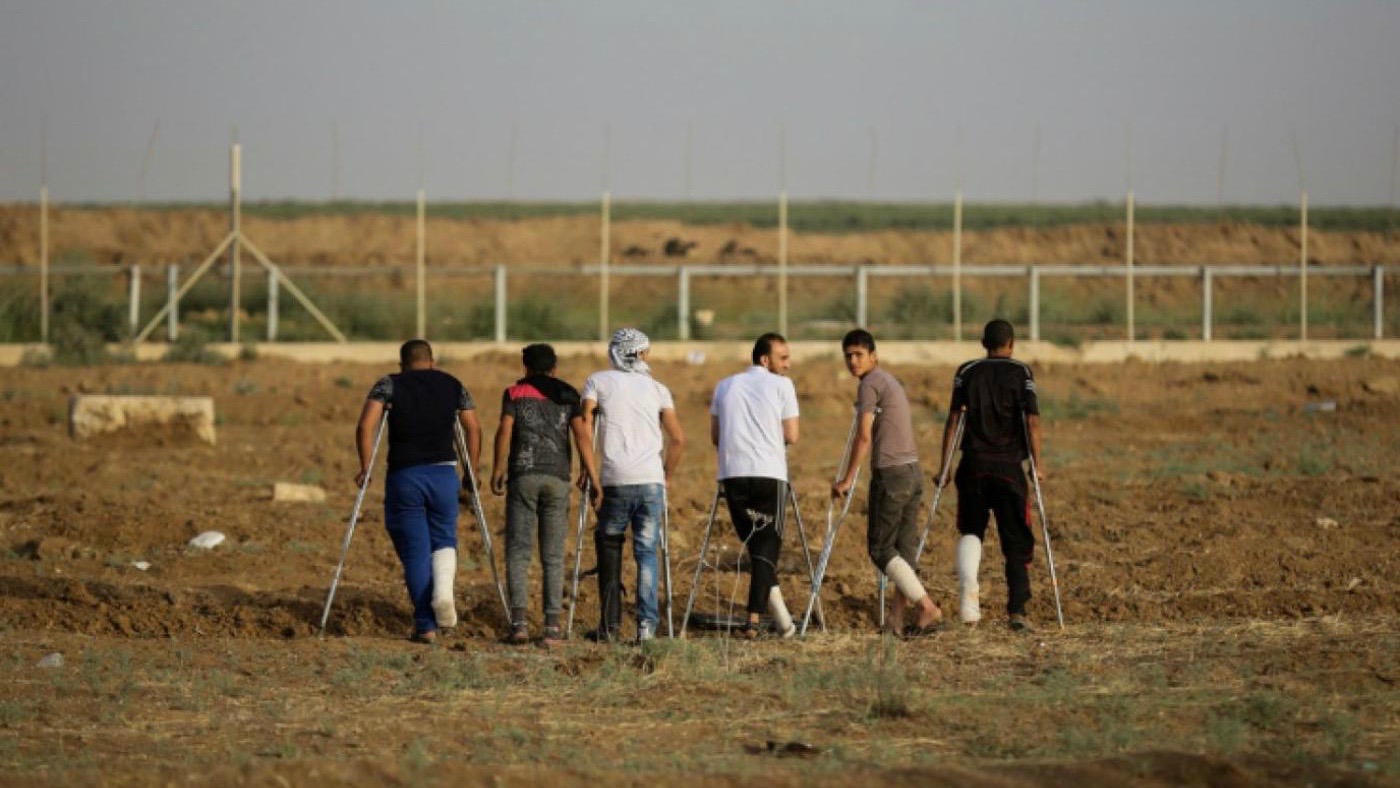Israel failed to investigate the killings of more than 250 Palestinians, including 47 minors, medics and journalists, during the Great March of Return protests which took place on the Gaza-Israel border in 2018-19, as per a report published by Gaza-based Palestinian Centre for Human Rights (PCHR) and the Israeli B’Tselem group on Thursday, December 3. The violent Israeli response to the protests also ended up injuring more than 20,000 people. Israeli soldiers have been accused of using live ammunition and deadly butterfly bullets under an open-fire policy to suppress the protests in addition to other riot dispersal methods such as tear gas and smoke bombs.
The report titled “Unwilling and Unable: Israel’s Whitewashed Investigations of the Great March of Return Protests” notes that in the years following the protests, the Israeli authorities carried out farcical investigations showing “how Israel worked to whitewash the truth and protect the political and military officials responsible, instead of taking action against the individuals who devised and implemented the unlawful open-fire policy, which resulted in the killing of more than 200 Palestinians and the injury of some 8,000 others.”
Israel carried out investigations only in cases deemed “exceptional” and no investigation was carried out in cases where the victim was condemned as a “terrorist”. According to the report, of the 143 cases referred to military prosecutors, 95 were closed with no further action. Only one investigation into the killing of a 14-year old Palestinian boy led to an indictment where the convicted soldier received only a one-month sentence of “hard military labor”.
As per the report, “Israel was quick to announce it is investigating the protests, primarily due to the proceedings underway at the International Criminal Court (ICC) in The Hague.” This was to prevent any ICC investigation since the court can assert its jurisdiction only when the state in question is “unwilling or unable” to carry out its own investigation. However, as per the groups, merely declaring an investigation is not enough as it must be effective in holding both high-ranking officials and low-ranking personnel accountable. The report says that “the investigations conducted by Israel are no more than a smokescreen designed – according to Israel – to protect the officials responsible from the ICC. In fact, they prove the opposite: that Israel is unwilling and unable to investigate the human rights abuses carried out by its security forces during the Great March of Return protests in the Gaza Strip. Considering this, the responsibility to ensure accountability for these violations now lies with the ICC.” Significantly, Israel is not a member of the ICC. The Palestinian Authority joined the ICC statute in 2015.
The Great March of Return protests were launched in 2018 and held every week on Friday to demand Israel and Egypt to end the crippling land, air and sea blockade imposed on Gaza since 2007 after Hamas took control of the territory following its victory in the Palestinian general elections. The results were not recognized by Israel, the US, and the West. The protesters also demanded that Israel implement the Palestinian refugees’ right to return under International law. They should be allowed to return to their homes and lands in current-day Israel from where they were displaced and ethnically cleansed during the establishment of the state of Israel in 1948. The protests were being held at a time when the US government under president Donald Trump took several unilateral measures in support of Israel and heavily biased against Palestinians, such as announcing the opening of the US embassy in Jerusalem. This led to widespread anger and outrage from Palestinians and international condemnation from the United Nations and European Union, among others.





